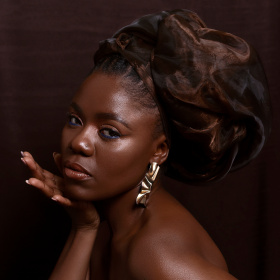The challenges of pan-African media coverage
A spot check across the major entertainment blogs in most African countries will reveal a common trend: most of them focus almost entirely on local and diaspora stories while ignoring regional features. A reader in Kenya will be well-versed in all that happens at home and in the US but be completely oblivious to the rest of Africa.
 Nigerian pop icon Wizkid has transcended the borders of his country to become one of the most successful artists in Africa.
Nigerian pop icon Wizkid has transcended the borders of his country to become one of the most successful artists in Africa.
A good example is Beyoncé’s Coachella performance, which was reported by almost all media outlets in Africa, including Kenya, and Yemi Alade’s European tour, which barely got a mention. This kind of selective reporting, which is often a regurgitation of international content floating on the Internet, results in the devaluation of African artist, which in turn hampers the pan-African music market.
In the end, African artists don’t get enough traction to secure bookings, and with media playing a critical role in the entertainment industry, audiences are not exposed to some of the best talent in Africa. No wonder so many African musicians find success in the US and Europe while they're shunned at home.
In the 1950s and 1960s, the civil rights movements in the West stimulated a wave of pan-Africanist sentiment on the continent. In the 1980s and early 1990s, the Union of National Radio and Television Organisations of Africa (URTNA) ran a popular TV show credited with promoting African music across Africa.
“I can now trace my love for African music to URTNA: the one-hour show which came every so often featuring various African musicians," Kenyan Poet, a blogger, wrote ahead of the 2016 edition of Koroga Festival in Nairobi. "As Sam Fan Thomas comes to Kenya for the 14th edition of the Koroga Festival, it will be a dance down memory lane."
A pan-African music platform like URTNA's demonstrates the long-term effect it had on Kenyan Poet's music taste.
Today, however, commercial viability is the first thing media houses look at before adopting their content strategies and editorial stances. Media can't exist in a vacuum and is subject to the cultural realities on the ground; the public influences the media as much the media influences the public. A pan-African agenda may be a noble venture for media outlets, but the bottom line is the main motivator.
It's widely accepted that increased pan-African coverage will grow African artists and the music industry on the continent. But what will it do for the ratings and commercial success of media houses?
“Africa is not a country like the US, our cultures are just too diverse for pan-African content to be sustainable," Kenyan entertainment editor Philip Mwaniki told Music In Africa. "Our countries are very different geographically, socially and politically. It will take more than just media to bring us together. It’s not something you can force. We're all unique and, yes, we are isolated, but it is not necessarily a bad thing.”
Mwaniki contends that isolation, though present, is not absolute. There are artists, like Diamond Platnumz and Wizkid, who have broken through regional barriers to become some of the most successful African artists of all time. Mwaniki believes that the identity of each African country makes for a stronger continent. National identity, he says, shouldn’t be diluted in the name of pan-Africanism.
Grace Kerongo is the chairperson of the Kenyan Entertainment and Arts Journalists Association. She admits that local media doesn’t cover enough pan-African content.
“It takes a scandal or the death of a pan-African star to drive up traffic, but simply talking about the music or talent of an act won’t really cut it,” Kerongo said during an exclusive interview with Music In Africa.
“It’s about ratings at the end of the day. No editor will consider a pan-African story unless it has a really good twist, or if it somehow relates to the local context. Maybe technology will eventually make us a global village, but for now local media houses won’t do very many pan-African stories and I don’t see it changing in a while.
Kerongo says artists have to be intentional with their publicity to secure pan-African coverage. She believes media tours and participating in regional mainstream TV programmes like Coke Studio Africa and Big Brother are good ways to maintain a pan-African footprint.
Africa is a lucrative market that is yet to be fully tapped by African artistes. Although media has a role play in the development of the pan-African agenda, commercial media is limited by the dictates of ratings. It behoves every artist worth their salt to find ways to make themselves relevant to the pan-African audience to secure that elusive coverage.






























Comments
Log in or register to post comments